Guoliang Cheng
Two-Timescale Digital Twin Assisted Model Interference and Retraining over Wireless Network
Nov 27, 2024


Abstract:In this paper, we investigate a resource allocation and model retraining problem for dynamic wireless networks by utilizing incremental learning, in which the digital twin (DT) scheme is employed for decision making. A two-timescale framework is proposed for computation resource allocation, mobile user association, and incremental training of user models. To obtain an optimal resource allocation and incremental learning policy, we propose an efficient two-timescale scheme based on hybrid DT-physical architecture with the objective to minimize long-term system delay. Specifically, in the large-timescale, base stations will update the user association and implement incremental learning decisions based on statistical state information from the DT system. Then, in the short timescale, an effective computation resource allocation and incremental learning data generated from the DT system is designed based on deep reinforcement learning (DRL), thus reducing the network system's delay in data transmission, data computation, and model retraining steps. Simulation results demonstrate the effectiveness of the proposed two-timescale scheme compared with benchmark schemes.
AnycostFL: Efficient On-Demand Federated Learning over Heterogeneous Edge Devices
Jan 08, 2023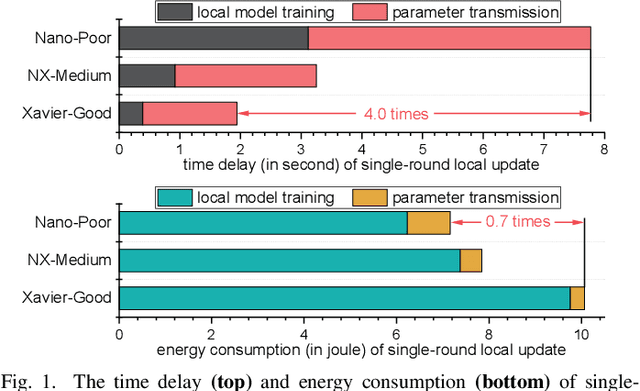
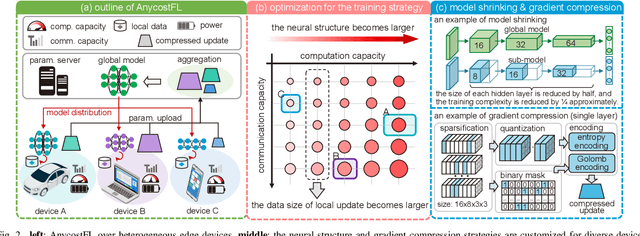
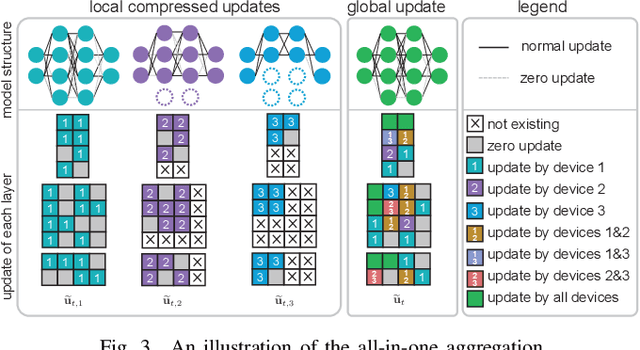

Abstract:In this work, we investigate the challenging problem of on-demand federated learning (FL) over heterogeneous edge devices with diverse resource constraints. We propose a cost-adjustable FL framework, named AnycostFL, that enables diverse edge devices to efficiently perform local updates under a wide range of efficiency constraints. To this end, we design the model shrinking to support local model training with elastic computation cost, and the gradient compression to allow parameter transmission with dynamic communication overhead. An enhanced parameter aggregation is conducted in an element-wise manner to improve the model performance. Focusing on AnycostFL, we further propose an optimization design to minimize the global training loss with personalized latency and energy constraints. By revealing the theoretical insights of the convergence analysis, personalized training strategies are deduced for different devices to match their locally available resources. Experiment results indicate that, when compared to the state-of-the-art efficient FL algorithms, our learning framework can reduce up to 1.9 times of the training latency and energy consumption for realizing a reasonable global testing accuracy. Moreover, the results also demonstrate that, our approach significantly improves the converged global accuracy.
Semi-blind source separation using convolutive transfer function for nonlinear acoustic echo cancellation
Jul 04, 2022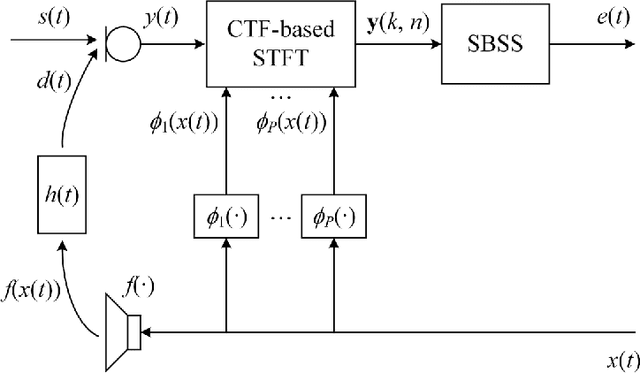
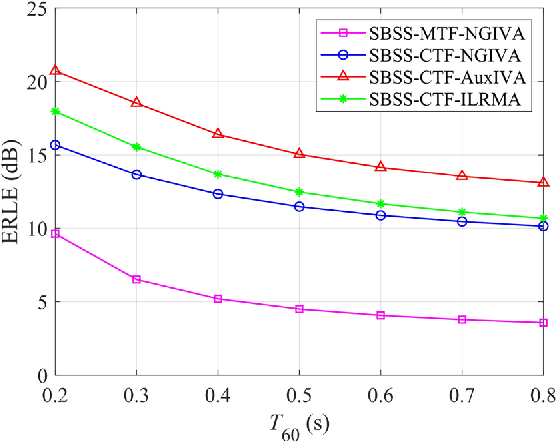
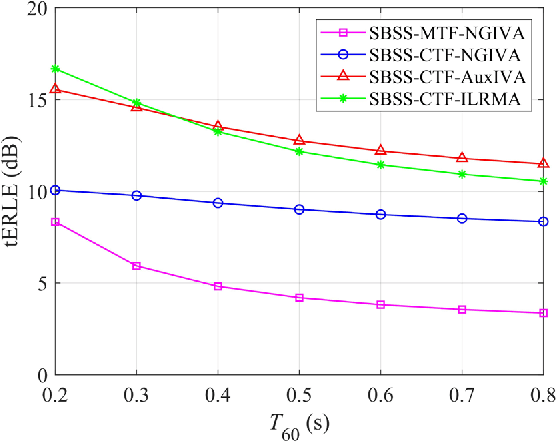
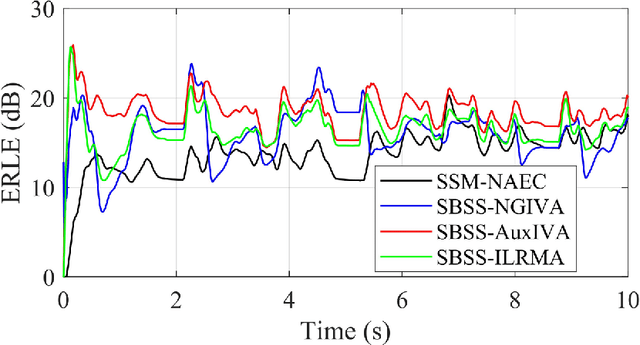
Abstract:The recently proposed semi-blind source separation (SBSS) method for nonlinear acoustic echo cancellation (NAEC) outperforms adaptive NAEC in attenuating the nonlinear acoustic echo. However, the multiplicative transfer function (MTF) approximation makes it unsuitable for real-time applications especially in highly reverberant environments, and the natural gradient makes it hard to balance well between fast convergence speed and stability. In this paper, we propose two more effective SBSS methods based on auxiliary-function-based independent vector analysis (AuxIVA) and independent low-rank matrix analysis (ILRMA). The convolutive transfer function (CTF) approximation is used instead of MTF so that a long impulse response can be modeled with a short latency. The optimization schemes used in AuxIVA and ILRMA are carefully regularized according to the constrained demixing matrix of NAEC. Experimental results validate significantly better echo cancellation performance of the proposed methods.
 Add to Chrome
Add to Chrome Add to Firefox
Add to Firefox Add to Edge
Add to Edge